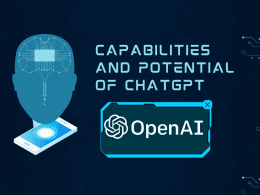Introduction
Data science has become one of the most sought-after professions across businesses in today’s data-driven society. Organizations are depending more and more on data to make wise decisions in a variety of industries, including technology, healthcare, and finance. Data science has emerged as a desirable career option due to this increasing need. But in order to be successful in this sector, one must acquire a certain set of abilities that go beyond technical understanding. Gaining proficiency in these key competencies will help you stand out in the competitive job market, regardless of your level of experience or your stage of transition into a data science profession.
Rise of Data Science Skills
Data science grew fast as companies started collecting huge amounts of data from apps, websites, and devices. Cheaper cloud storage and open-source tools like Python made it easier for beginners to start. Universities, bootcamps, and online courses rushed to teach these skills. At the same time, business leaders asked for clearer insights, faster dashboards, and smarter predictions. This pressure pushed teams to hire people who can clean data, build models, and explain results. As AI became mainstream, the need for solid data skills rose even more.
Benefits of Learning These Skills
Learning core data science skills opens doors to many jobs and industries. You can help teams make better choices with facts, not guesses. Automation saves hours by turning slow manual reports into quick, reliable pipelines. Strong analysis can spot risks early and find new revenue ideas. These skills also travel well—you can move from healthcare to retail to finance with the same toolkit. For individuals, the mix of math, code, and storytelling keeps work varied and rewarding.
Role of Each Must-Have Skill
Programming (often Python) lets you pull, clean, and analyze data. SQL helps you talk to databases and get exactly the rows you need. Statistics teaches you to test ideas, avoid false conclusions, and measure uncertainty. Machine learning turns patterns into predictions for churn, demand, fraud, or pricing. Data cleaning and feature engineering make raw data useful and models stronger. Visualization and storytelling turn numbers into simple charts and clear messages leaders can act on. Domain knowledge keeps your work realistic and focused on business value. Version control, basic cloud skills, and ethics/privacy practices make your projects reliable, scalable, and safe.
Top Skills Every Aspiring Data Scientist Must Learn
1. Programming Knowledge
Data science relies heavily on programming. Data collection, cleaning, analysis, and visualization all depend on the ability to create and comprehend code. Python and R are widely used computer languages in data research because of their many libraries, including NumPy, Pandas, Scikit-learn, and ggplot2.
For aspiring data scientists, mastering Python is crucial because of its ease of use and strong presence in AI and machine learning. Real-world data projects benefit greatly from having a solid grasp of how to develop concise, effective code. Many students choose to strengthen these skills by joining Programming Courses in Chennai, where they receive structured training and hands-on practice.
2. Understanding of Statistics and Probability
Analyzing data and coming to insightful conclusions requires a strong foundation in probability and statistics. Statistical knowledge helps data scientists interpret data trends, test hypotheses, and make predictions.
Understanding concepts such as mean, median, standard deviation, distributions, p-values, and statistical significance can guide decisions in data analysis. It is also essential for creating machine learning models and assessing how well they work.
3. Data Wrangling and Cleaning Skills
Real-world data is rarely clean or ready for analysis. It often contains missing values, inconsistencies, and noise. Data wrangling is, therefore, a crucial talent that involves converting and translating unprocessed data into a format that can be used.
Tools like Pandas and SQL are helpful for cleaning and organizing data. Data scientists must learn how to handle null values, remove duplicates, standardize formats, and prepare data for accurate analysis.
4. Machine Learning Algorithms
A data scientist should be familiar with common machine learning (ML) algorithms. These include supervised learning methods such as linear regression, logistic regression, and decision trees, as well as unsupervised methods like clustering and dimensionality reduction.
Understanding how algorithms work, when to use them, and how to evaluate them using metrics like accuracy, precision, recall, and F1-score is critical. Learning frameworks like Scikit-learn, TensorFlow, and Keras can enhance your ability to build predictive models.
5. Data Visualization
A potent technique for efficiently and concisely conveying ideas is data visualization. Being able to present data in a visual format helps stakeholders make informed decisions.
Being able to visualize data effectively is a vital skill for any data scientist. Tools like Matplotlib, Seaborn, and Tableau allow you to build insightful charts and dashboards that convey your findings clearly. Those who enroll in a Data Science Course in Chennai will get hands-on experience with these visualization tools, learning how to transform raw data into compelling visual stories that drive smarter decisions.
6. SQL and Databases
SQL (Structured Query Language) is vital for interacting with databases. Data scientists use SQL to retrieve, filter, and manipulate data stored in relational databases. Mastering SQL helps in handling large datasets and integrating data from multiple sources.
Understanding how databases work including indexing, joins, and normalization ensures that you can access and analyze data efficiently and securely.
7. Cloud Platforms and Big Data Tools
With data growing in size and complexity, many organizations use cloud platforms and big data technologies. Familiarity with platforms like AWS, Google Cloud, or Microsoft Azure can be a big plus.
Additionally, tools like Apache Spark, Hadoop, and Kafka are used for processing and managing massive datasets. Knowing how to work with cloud-based data pipelines and big data tools can help you manage enterprise-level projects more effectively.
8. Communication and Data Storytelling
Beyond technical skills, data scientists must be able to communicate insights to non-technical audiences. This means simplifying complex results and focusing on business impact.
Strong communication skills help in writing reports, presenting to stakeholders, and collaborating with cross-functional teams. The ability to tell a compelling story with data supported by visuals and clear narratives sets great data scientists apart.
9. Problem-Solving and Critical Thinking
Data science is all about solving problems with data. Whether it’s increasing customer retention or optimizing supply chains, critical thinking allows data scientists to identify the right problems and design effective solutions.
This skill involves asking the right questions, breaking down problems logically, and creatively applying algorithms or data insights to find answers.
10. Continuous Learning and Curiosity
The field of data science is constantly evolving. New tools, libraries, and research papers are released frequently. Successful data scientists are always curious and committed to lifelong learning.
Following industry blogs, enrolling in online courses, attending webinars, and participating in open-source projects can help you stay updated. Platforms like Kaggle and GitHub also provide opportunities to practice and showcase your skills.
Combining technical, analytical, and communication abilities is necessary to become a data scientist. Every skill you acquire, from being an expert in statistics and programming to becoming well-versed in cloud computing and machine learning, helps you get value from data.
Bonus: Soft Skills That Matter
In addition to technical knowledge, some soft skills also help you grow in your data science journey:
- Time management: Projects have deadlines.
- Teamwork: Most data projects are done with others.
- Adaptability: New tools and methods appear often.
Being organized, flexible, and a good team player will set you apart.
How to Start Learning These Skills
You don’t need to learn everything at once. Start with the basics and build step by step. Here’s a simple path to follow:
- Learn Python or R
- Practice with small datasets
- Study statistics and data visualization
- Learn SQL and databases
- Explore machine learning models
- Work on real projects
There are many free and paid resources online. Choose one that suits your learning style and stick with it.
Conclusion
Becoming a data scientist is a journey, not a race. The top skills every aspiring data scientist must learn include understanding math, learning to code, analyzing and visualizing data, knowing machine learning basics, using SQL, and communicating results clearly. You also need problem-solving skills and real-world practice. By learning these step by step and staying curious, you can build a strong foundation for a successful career in data science. Start small, keep learning, and soon, you’ll be ready to turn data into impact.












